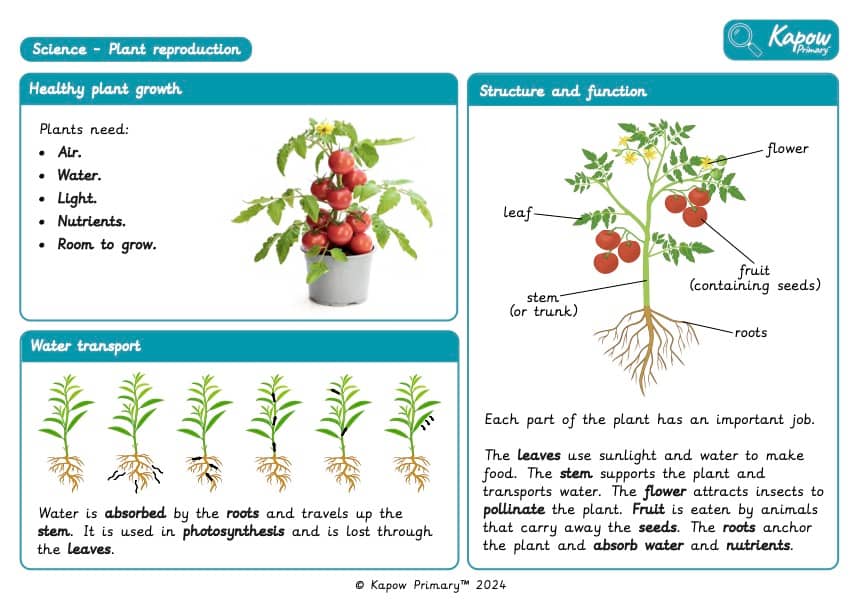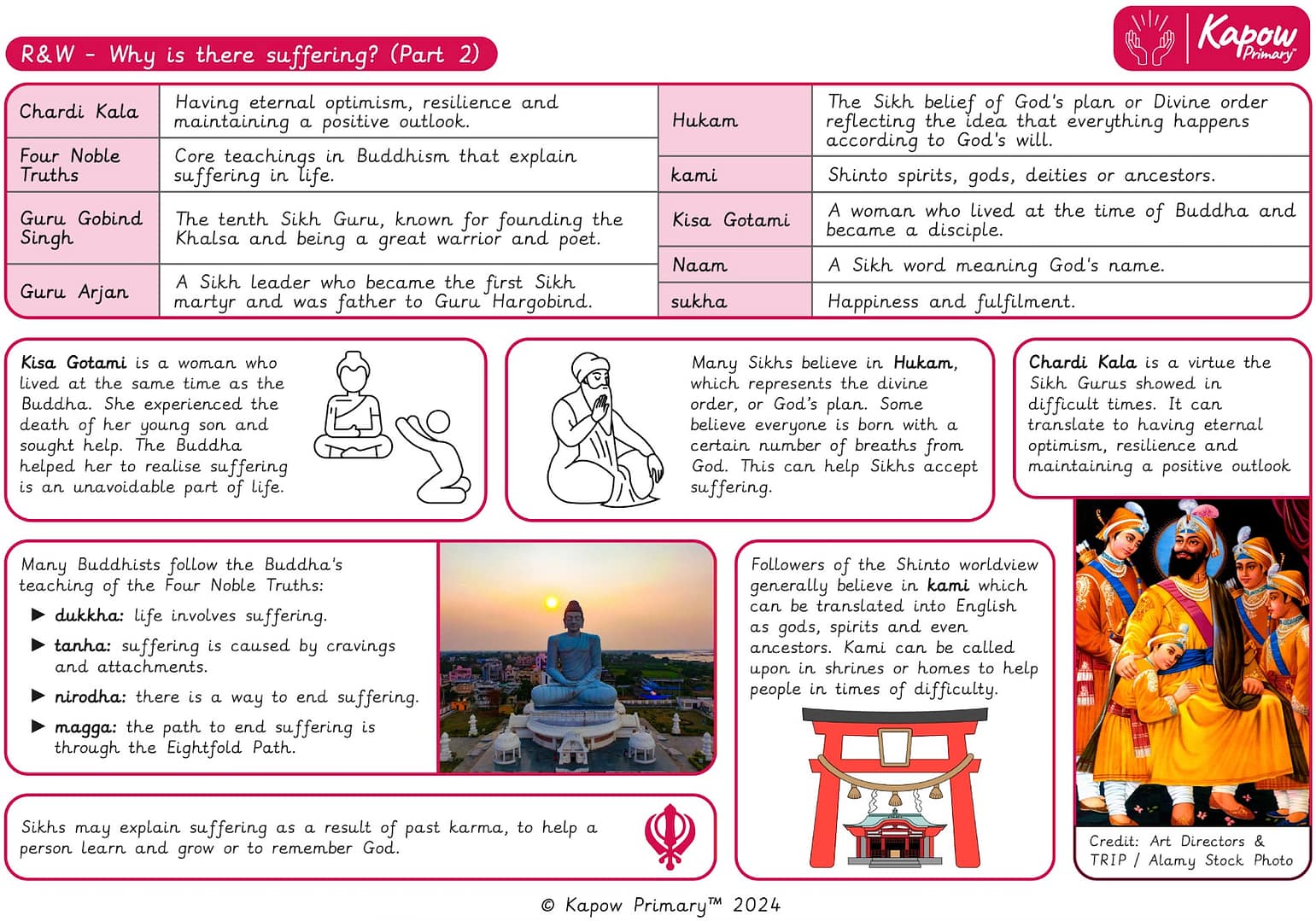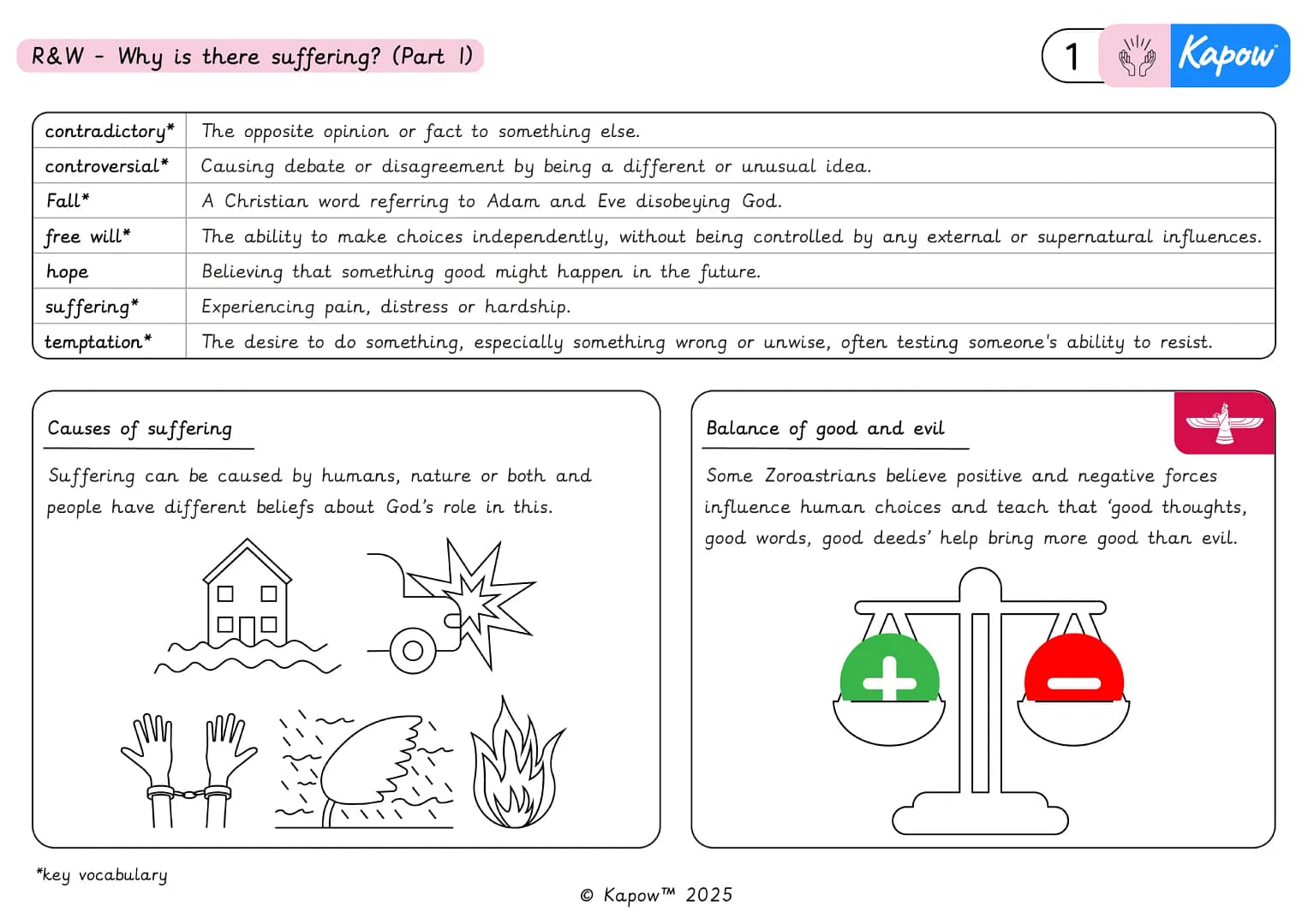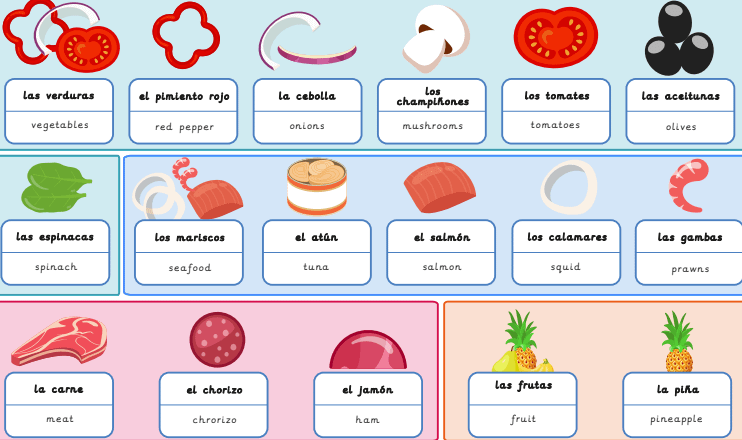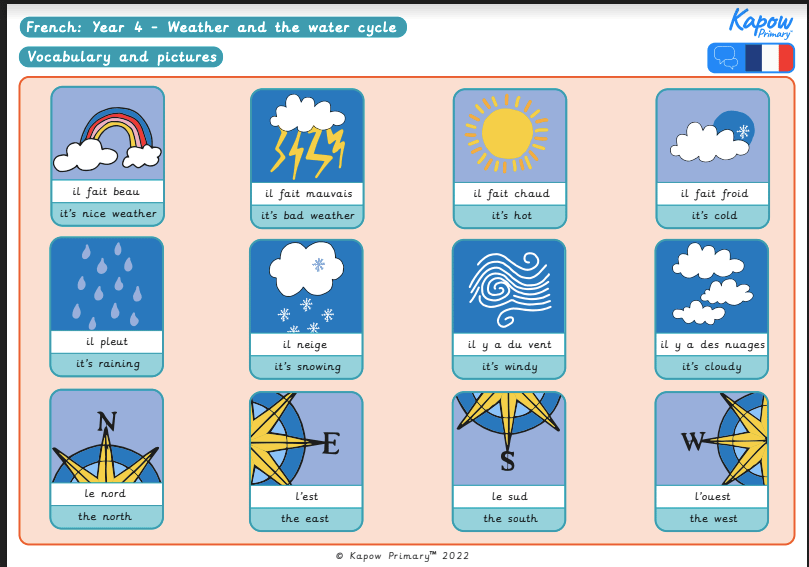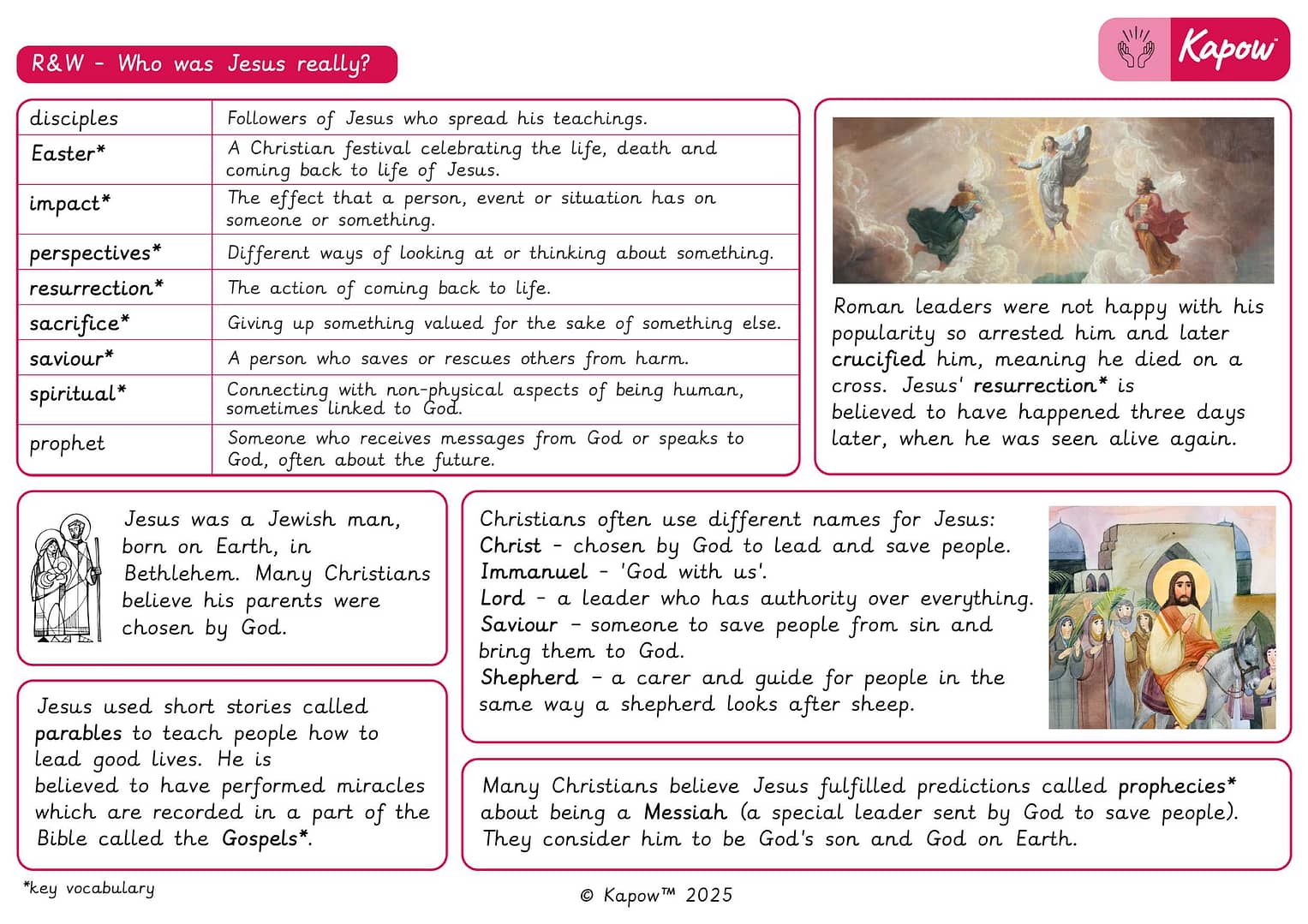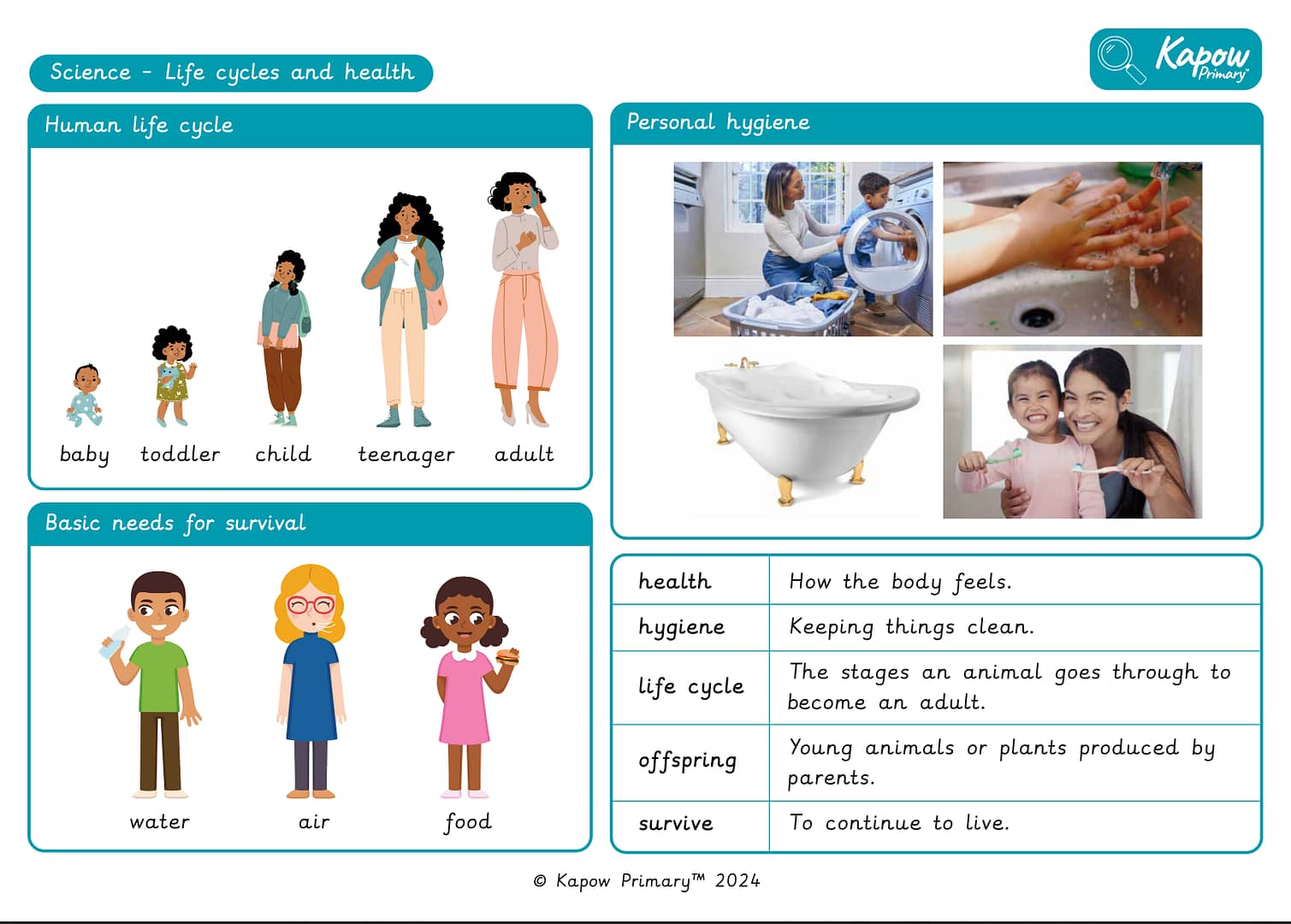Featured Document Type: Knowledge organiser
Knowledge organiser – R&W Y6: Why is there suffering? (Part 2)
A Knowledge organiser that captures the essential knowledge and skills learnt throughout the unit Religion and Worldviews, Year 6, Why Is There Suffering? (Part 2).
This Religion and Worldviews resource is designed to support the pupils as they continue exploring different religious and philosophical perspectives on suffering. It introduces key vocabulary such as justice, karma, empathy, resilience, and redemption, helping the pupils understand how different worldviews explain and respond to suffering. The pupils will also learn about religious teachings, ethical dilemmas, and how individuals and communities seek to alleviate suffering.
Knowledge organiser – R&W Y6: Why is there suffering? (Part 1)
Knowledge organiser: Y5 – Spanish food and drink
Knowledge organiser: Spanish – Classroom objects
Knowledge organiser: French – Y5/6 (A) French weather
A Knowledge organiser that captures the essential knowledge and skills learnt throughout the mixed-age unit French, Year 5/6 (A), French weather.
This resource supports pupils in learning how to describe the weather in French through vocabulary, sentence structures and numbers. It introduces weather expressions such as il fait chaud (it’s hot), il pleut (it’s raining), and il y a du vent (it’s windy), alongside compass points and temperature phrases. With visual aids and contextualised dialogues, it reinforces understanding of how to construct and interpret weather-related sentences, making it an engaging tool for developing language fluency and geographic vocabulary.
Knowledge organiser – Science Y5: Forces and space: Unbalanced forces
Knowledge organiser – R&W Y4: Who was Jesus really?
This Knowledge organiser captures the essential knowledge and skills learnt throughout the unit Religion and worldviews, Year 4, Who Was Jesus?
This Religion and worldviews resource is designed to support the pupils as they explore the life, teachings, and significance of Jesus. It introduces key vocabulary such as Messiah, parables, disciples, resurrection, and gospel, helping the pupils understand how Jesus is viewed within Christianity and his impact on history. The pupils will also learn about his teachings, the stories told about him, and how his influence continues in religious and cultural traditions today.

